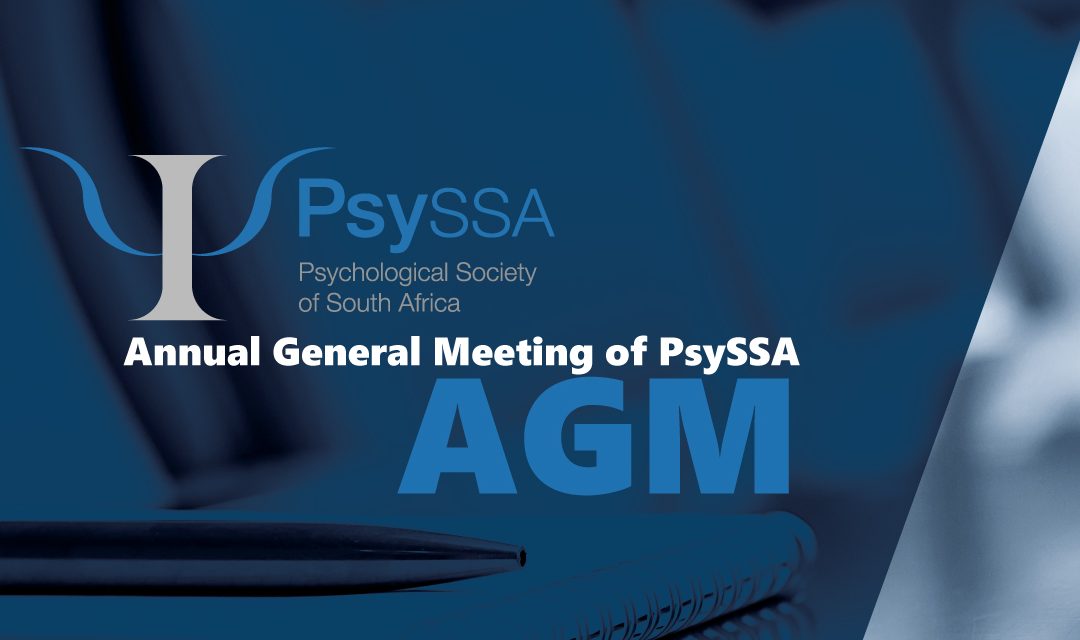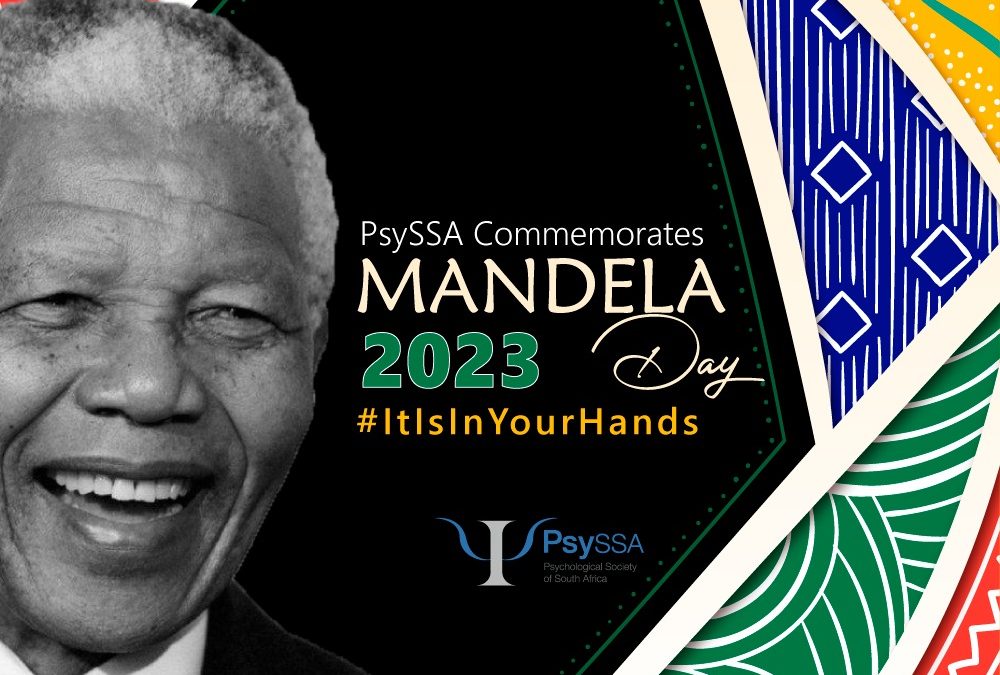On June 16th, South Africa observes Youth Day, a time to honour the bravery and resilience of the youth who fought against apartheid’s oppressive regime. As we commemorate their struggle, it is crucial to recognise the role of psychology in accelerating collaborations and creating opportunities to improve the lives of South African youth. By understanding young people’s psychological needs and challenges, we can develop effective strategies to empower and support their growth.
Psychology plays a fundamental role in addressing the socio-emotional well-being of the youth. South African youth often face unique challenges, such as intergenerational trauma, high levels of stress, and limited access to mental health resources (Adonis, 2016; Kim et al., 2023). These factors can profoundly impact their overall development and hinder their ability to reach their full potential. By focusing on psychology, we can better understand and address these challenges.
Collaboration between psychologists, educators, and policymakers is crucial in developing comprehensive programs that promote mental health and resilience among young people (Wiedermann et al., 2023; Cavioni et al., 2020). It is essential to prioritise mental health support in public institutions such as schools, colleges, and universities. The aim is to provide accessible counselling services, psychoeducation programs, and stress management techniques. Integrating psychological support within educational institutions can create safe and nurturing environments that foster emotional well-being and academic success (Biglan et al., 2012; Weare, 2015).
Collaboration is not limited to the educational sphere alone. Public-private partnerships can play a pivotal role in expanding youth access to mental health services (Azzopardi et al., 2021). By working together, the government, private sector, and mental health organisations can establish community-based centres that provide affordable and culturally sensitive counselling services (World Health Organization [WHO], 2021). Mobile applications and online platforms can also be utilised to reach a wider audience and provide resources for self-help and early intervention (Naslund et al., 2019).
Another advent that can be utilised is using Psychology principles to create opportunities for the youth by focusing on career guidance and personal development. Research has shown that career guidance is a powerful tool to assist in bridging the gap between high school education and the working world (Ibrahim, 2014). Furthermore, career guidance programs will assist students in understanding their potential and making the correct educational and vocational choices (Ombaba, 2014).
Psychological assessments and career counselling can assist the youth of today in many aspects. These mechanisms can help to identify their strengths, interests, and aspirations, guiding them towards fulfilling career paths (Lowman, 2022; Robertson, 2013). Mentorship is another key mechanism that can aid in career development. Mentorship programs are when experienced professionals provide advice, guidance and support to others. Evidence suggests that engaging with mentorship can further enhance their personal growth, professional prospects, job performance and leadership development (Ghosh, 2013; Scandura & Williams, 2004).
Psychological interventions can be instrumental in empowering marginalised youth, such as those from disadvantaged backgrounds or with disabilities (Eichas et al., 2017; Colizzi et al., 2020). Some of the psychological barriers that marginalised youth may face include low self-esteem or limited self-efficacy (Morton & Montgomery, 2013). By addressing these issues, we can help them develop resilience and a positive mindset. Empowerment programs that focus on building life skills, enhancing self-awareness, and promoting a sense of agency can equip them with the tools necessary to overcome obstacles and seize opportunities (Iwasaki, Y. (2016).
Principles in psychology can be used to foster social cohesion and promote understanding among diverse youth populations. South Africa is a multicultural and multilingual country. Young people from different backgrounds often face challenges related to identity, discrimination, and prejudice (Adjai & Lazaridis, 2013; Muller, 2017). Through initiatives like intergroup dialogue, diversity training, and cultural exchange programs, psychology can facilitate collaboration and promote a sense of unity among the youth, breaking down barriers and fostering a more inclusive society (Aldana et al., 2012; Adams et al., 2018; Brown, 2020).
As we celebrate Youth Day, let us recognise the power of psychology in accelerating collaborations and creating opportunities for South African youth. By prioritising mental health, providing comprehensive support systems, and fostering personal growth, we can empower young people to overcome challenges and thrive in all aspects of their lives. Through collaboration between psychologists, educators, policymakers, and community organisations, we can build a society that nurtures the psychological well-being of the youth, enabling them to become resilient, empowered individuals who contribute positively to their communities and the nation as a whole.
References
Adams, B. G., Naudé, L., Nel, J. A., Vijver, F. J. R. van de, Laher, S., Louw, J., & Tadi, F. (2018). When There Are Only Minorities: Identity and In-Group / Out-Group Orientations of Emerging Adults in Four South African Ethnocultural Groups. Emerging Adulthood, 6(1), 7–16. https://doi.org/10.1177/2167696817752755
Adjai, C., & Lazaridis, G. (2013). Migration, xenophobia and new racism in post-apartheid South Africa. Int’l J. Soc. Sci. Stud., 1, 192
Adonis, C. K. (2016). Exploring the salience of intergenerational trauma among children and grandchildren of victims of apartheid-era gross human rights violations. Indo-Pacific Journal of Phenomenology, 16(1-2).
Aldana, A., Rowley, S. J., Checkoway, B., & Richards-Schuster, K. (2012). Raising ethnic-racial consciousness: The relationship between intergroup dialogues and adolescents’ ethnic-racial identity and racism awareness. Equity & Excellence in Education, 45(1), 120-137.
Azzopardi, P. S., Hennegan, J., Prabhu, S. M., Dagva, B., Balibago, M. M., Htin, P. P. W., … & Kennedy, E. C. (2021). Key recommendations to strengthen public-private partnership for adolescent health in resource constrained settings: Formative qualitative inquiry in Mongolia, Myanmar and the Philippines. The Lancet Regional Health-Western Pacific, 15, 100242. https://doi.org/10.1016/j.lanwpc.2021.100242
Biglan, A., Flay, B. R., Embry, D. D., & Sandler, I. N. (2012). The critical role of nurturing environments for promoting human well-being. American Psychologist, 67(4), 257.
Brown, Anthony. (2020). Queering Teacher Education Through Intergroup Dialogue. Educational Research for Social Change, 9(2), 16-31. https://dx.doi.org/10.17159/2221-4070/2020/v9i2a2
Cavioni, V., Grazzani, I., & Ornaghi, V. (2020). Mental health promotion in schools: A comprehensive theoretical framework. International Journal of Emotional Education, 12(1), 65-82, https://www.um.edu.mt/library/oar/handle/123456789/55039
Colizzi, M., Lasalvia, A. & Ruggeri, M. (2020). Prevention and early intervention in youth mental health: Is it time for a multidisciplinary and trans-diagnostic model for care?, Int J Ment Health Syst (14)23. https://doi.org/10.1186/s13033-020-00356-9
Eichas, K., Montgomery, M. J., Meca, A., & Kurtines, W. M. (2017). Empowering Marginalized Youth: A Self-Transformative Intervention for Promoting Positive Youth Development. Child Development, 88(4), 1115–1124. http://www.jstor.org/stable/45046368
Ghosh, R., & Reio Jr, T. G. (2013). Career benefits associated with mentoring for mentors: A meta-analysis. Journal of Vocational Behavior, 83(1), 106-116.
Ibrahim, R., Olaka, P.J.O., Wambiya, P. & Raburu, B.O. (2014). Perceptions on the role of guidance and counselling programme on Kenyan Secondary School students’ career decision making. Journal of Education and Social Sciences, 4(6):301.
Iwasaki, Y. (2016). The role of youth engagement in positive youth development and social justice youth development for high-risk, marginalised youth. International Journal of Adolescence and Youth, 21(3), 267-278.
Kim, A. W., Said Mohamed, R., Norris, S. A., Richter, L. M., & Kuzawa, C. W. (2023). Psychological legacies of intergenerational trauma under South African apartheid: Prenatal stress predicts greater vulnerability to the psychological impacts of future stress exposure during late adolescence and early adulthood in Soweto, South Africa. Journal of child psychology and Psychiatry, and allied disciplines, 64(1), 110–124. https://doi.org/10.1111/jcpp.13672
Lowman, R. L. (2022). Career assessment: Integrating interests, abilities, and personality. American Psychological Association.
Morton, M. H., & Montgomery, P. (2013). Youth Empowerment Programs for Improving Adolescents’ Self-Efficacy and Self-Esteem: A Systematic Review. Research on Social Work Practice, 23(1), 22–33. https://doi.org/10.1177/1049731512459967
Müller, A. (2017). Scrambling for access: availability, accessibility, acceptability and quality of healthcare for lesbian, gay, bisexual and transgender people in South Africa. BMC Int Health Hum Rights,(17)16. https://doi.org/10.1186/s12914-017-0124-4.
Naslund, J. A., Gonsalves, P. P., Gruebner, O., Pendse, S. R., Smith, S. L., Sharma, A., & Raviola, G. (2019). Digital innovations for global mental health: opportunities for data science, task sharing, and early intervention. Current treatment options in psychiatry, 6, 337-351.
Ombaba, S., Keraro, F.N. Sindabi, A.M. & Asienyo, B.O. (2014). Adequacy of career guidance Resources in secondary schools in Nakuru, Kisii and Migori Counties, Kenya. International Journal of Innovation and Applied Studies, 6(4):921-928.
Robertson P. J. (2013). The well-being outcomes of career guidance. British Journal of Guidance & Counselling, 41(3), 254–266. https://doi.org/10.1080/03069885.2013.773959
Scandura, T. A., & Williams, E. A. (2004). Mentoring and transformational leadership: The role of supervisory career mentoring. Journal of vocational behaviour, 65(3), 448-468.
Weare, K. (2015). What works in promoting social and emotional well-being and responding to mental health problems in schools. London: National Children’s Bureau, 1-15.
Wiedermann, C. J., Barbieri, V., Plagg, B., Marino, P., Piccoliori, G., & Engl, A. (2023). Fortifying the Foundations: A Comprehensive Approach to Enhancing Mental Health Support in Educational Policies Amidst Crises. Healthcare (Basel, Switzerland), 11(10), 1423. https://doi.org/10.3390/healthcare11101423








